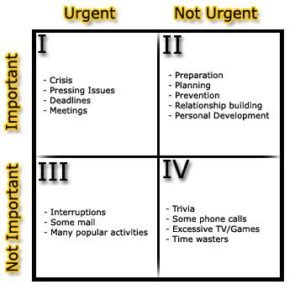10 Ways to Reduce and Overcome Everyday Stress
We understand that ordinary and not-so-ordinary life can get very stressful. For this week’s mental health post, we put together 10 ways to reduce and overcome your daily stress.
Take care of yourself first
When your life is stressful, sleeping can seem like a waste of time. However, many recent studies are showing that sleep promotes more productivity and reduces stress hormones. The same can go for eating. Not eating often enough, or eating foods that make you feel hungrier can cause irritability and add to an already stressful day. Eat foods that have a low glycemic index and you will be more likely to feel fuller, happier, and healthier. Last, exercise. Victor Lipman, contributor to Forbes.com, suggests to do, “Whatever you like and can easily do in or near the workplace.” Exercising regularly reduces your stress levels, releases endorphins (happy hormones), and increases your productivity.
Maintain a healthy support system
Maintaining your positive relationships can ensure that you have someone to go to in a time of need. Think of these people as your relationship bank account. The more you do for them, the easier it will be to ask for help. The idea isn’t to manipulate or keep score, but rather maintain a healthy give and take. Additionally, you might want to check out a mental health treatment center or mental health services. And hey, if you live near Vancouver, WA or Portland, OR, Lifeline Connections might have the perfect treatment plans for you.
Simplify
Everything. Your schedule, commitments, finances, to-do list, and workspace. Still doing your finances on an excel spreadsheet? Try using this app from the Dave Ramsey website that organizes it for you, saving you tons of time. Get rid of unnecessary clutter in your living spaces. Too much “stuff” makes it difficult to find something when you need it, and can make you anxious. Write down your schedule and to-do items. Writing it down in a place where you can see it often frees up the time you spend trying to remember and can help you eliminate the things that are not urgent or necessary.
 Recognize your limits
Recognize your limits
Learn to say no. If you have so many things to do that you are not able to take care of yourself, then your load is too full and will continue to increase your stress and lower your productivity. As a guide, refer to Stephen Covey’s 7 Habits of Highly Effective People. In his book, he describes the “management matrix”. It is a fantastic way to prioritize your commitments, set clear boundaries around your needed or desired tasks, and get to know what you need to do vs. what can wait.
Image copied from: http://salongen.de/picvvm/covey-time-management-matrix-pdf
Get the (big) picture
Take a step back and ask yourself a few questions. Are my expectations higher than they should be? Am I focusing too much attention on this one issue? If you notice yourself fixating on something unimportant, step away and think more about what your bigger issue or end goal is. Sure, you want that spreadsheet to look nice for your boss, but what is most important- the design or the information? Sometimes taking too much time to work on one thing can take you away from accomplishing the true task.
Take time to plan.
Planning out your trivial tasks ahead of time can free up much needed time in a stressful life. Make a monthly meal plan, write your grocery lists ahead of time (or use a time and money-saving tool like emeals.com), put out your clothes the night before. If you are in control of your work schedule, plan on only checking emails once a day at a specific time. Structuring your day, week, and month with free up your mind and help you take one step at a time to accomplishing everyday tasks to big projects.
Learn your triggers
Take all of the previous suggestions and decide which ones are the most likely to cause you stress. Is it having a cluttered space, insufficient sleep, or being unprepared? Write down these triggers and work on them one at a time.
Organize your space
Searching for lost items is a time-waster. Make sure everything has a place. If you are in need of some ideas for home organization, check out these do-it-yourself resources. It can seem overwhelming to organize a large space, so if you need to, ask for help, or be realistic about how much you can get done at a time.
Do what helps you calm down
Meditation, low-key exercise (such as yoga, light swimming, light hiking), or even just talking on the phone with a friend. Just like learning your triggers for stress, learn your best soothing habits and make a point of doing them consistently with a schedule. Take other’s advice with a grain of salt, because in the end, you will need to do what works best for you.
Get to know your resources and utilize them
Here at Lifeline Connections, we offer custom treatment plans for mental health and co-occurring disorders. Take advantage of our peer support and wellness skills, and get started as soon as possible on your path to recovery and a happy and healthy life.
